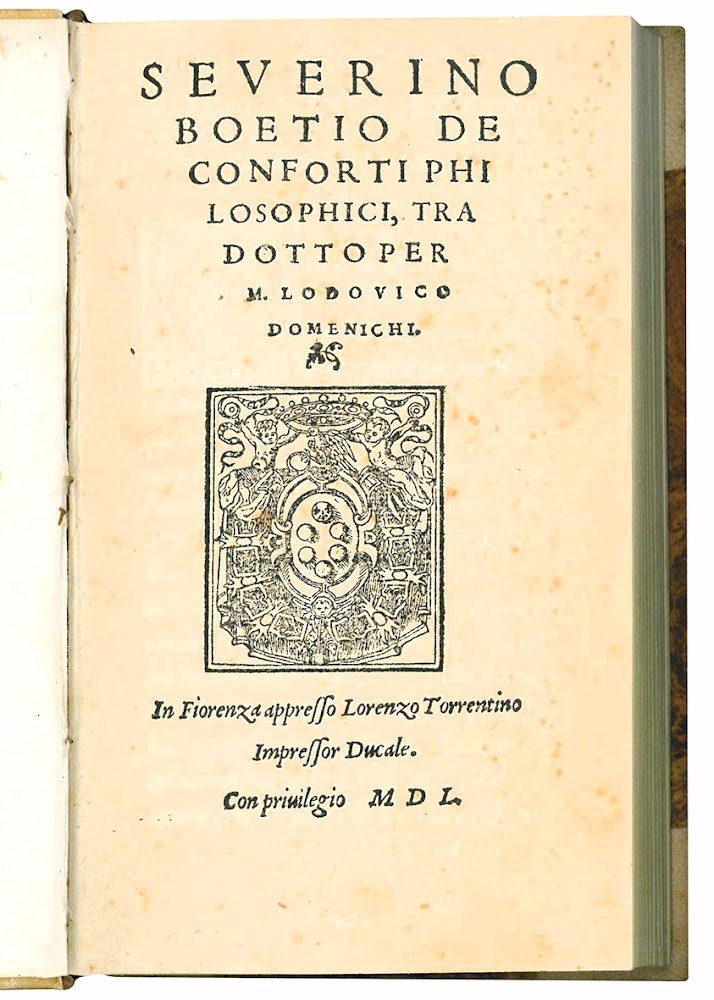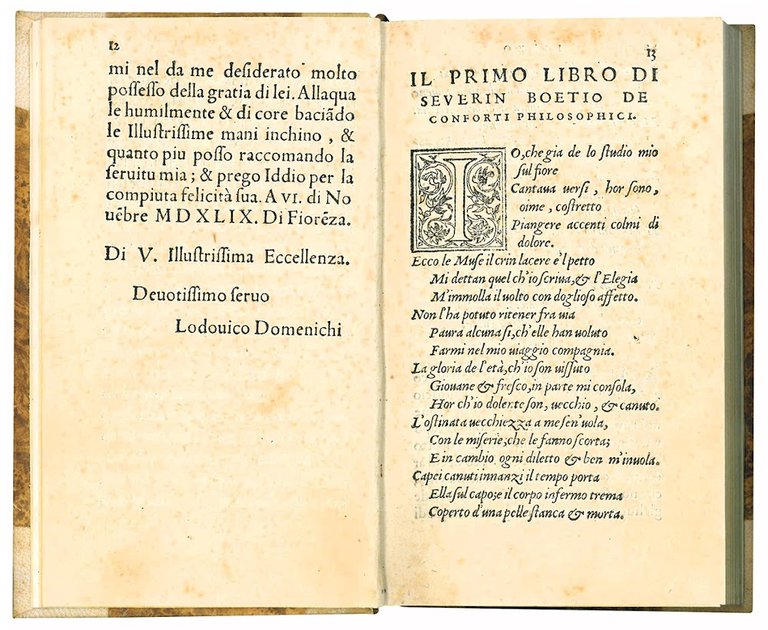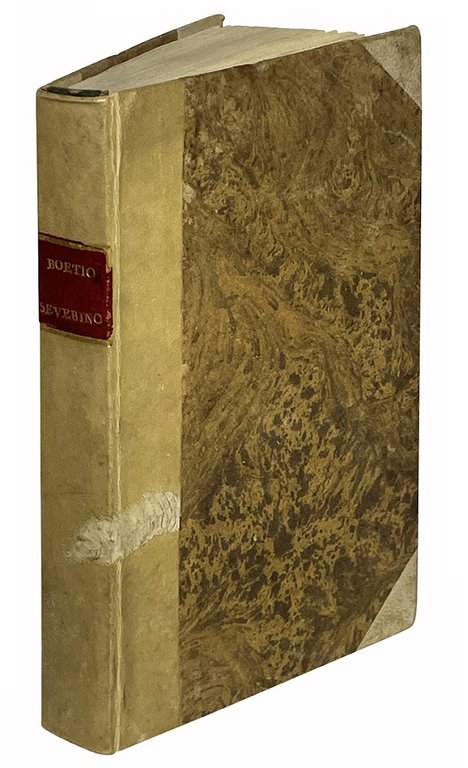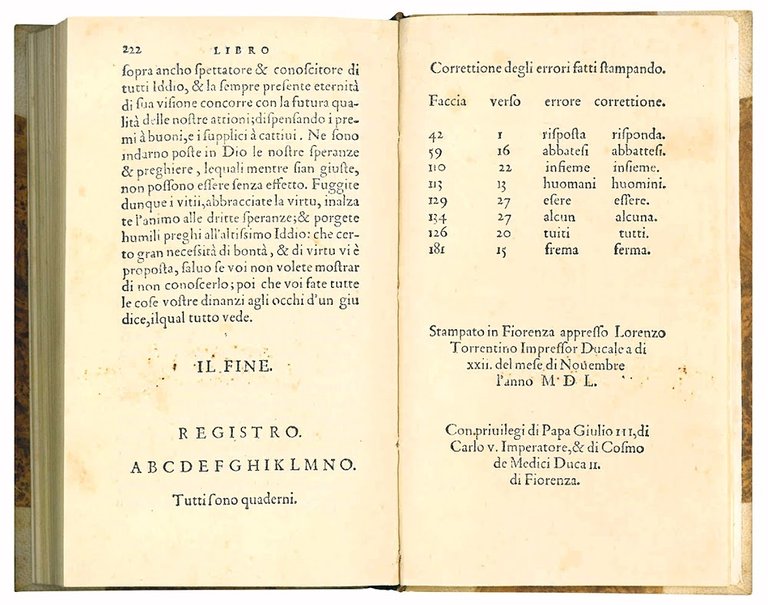



Livres anciens et modernes
BOETHIUS, Anicius Manlius Torquatus Severinus (ca. 480-524)-DO
De conforti philosophici, tradotto per M. Lodovico Domenichi
Lorenzo Torrentino, 22 November 1550
500,00 €
Govi Libreria Antiquaria
(Modena, Italie)
Les frais d'expédition corrects sont calculés une fois que l'adresse de livraison a été indiquée lors de la création de la commande. Un ou plusieurs modes de livraison sont disponibles à la discrétion du vendeur : standard, express, economy, in store pick-up.
Conditions d'expédition de la Librairie:
Pour les articles dont le prix est supérieur à 300 euros, il est possible de demander un plan de paiement échelonné à Maremagnum. Le paiement peut être effectué avec Carta del Docente, Carta della cultura giovani e del merito, Public Administration.
Les délais de livraison sont estimés en fonction du temps d'expédition de la librairie et de la livraison par le transporteur. En cas de retenue douanière, des retards de livraison peuvent survenir. Les frais de douane éventuels sont à la charge du destinataire.
Pour plus d'informationsMode de Paiement
- PayPal
- Carte bancaire
- Virement bancaire
-
-
Découvrez comment utiliser
votre Carta del Docente -
Découvrez comment utiliser
votre Carta della cultura giovani e del merito
Détails
Description
First edition of Domenichi's Italian translation of Boethius' De consolatione philosophiae, dedicated by him to the cardinal Ippolito d'Este and to the duke of Florence Cosimo de' Medici. In the late 1540s, Emperor Charles V, in anticipation of his retirement from public life, requested to the Duke of Florence Cosimo I a new Italian version of Boethius' work. The duke entrusted the task to three leading Florentine academics: Cosimo Bartoli, BenedettoVarchi, and Domenichi. All three translations were published by Torrentino between 1550 and 1551. It was Varchi's that met with the greatest success as he better managed to maintain the alternation between verse and prose of the original text.
The reasons for such a revival of Boethius' work in the Florentine academic circles, beyond the imperial commission, are manifold. On the one hand, the ancient philosopher's fame for its extraordinary erudition, his reputation as a translator and commentator on Plato and Aristotle (as well as synthesizer of their philosophies), his influence on Dante, and the widespread belief that he was closed to the Christian spirit. On the other hand, the great consolatory value that that text exerted on men who were effectively exposed to the whims of other more powerful men and of fortune (cf. J. Bryce, Cosimo Bartoli (1503-1572). The Career of a Florentine Polymath, Genève, 1983, pp. 172-176).
Edit 16, CNCE6562; Moreni, pp. 112-114.

